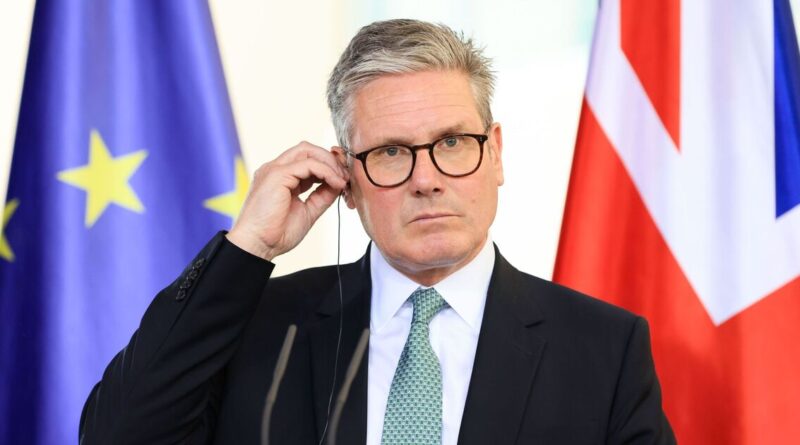EU to grant Starmer fresh start on youch mobility scheme | World | News
Sir Keir Starmer and Labour have repeatedly ruled out any deal with Brussels on youth mobility as part of a reset of EU-UK relations. However, the European Union is quietly confident that they can persuade the British PM to change his mind.
The EU has proposed a youth mobility scheme for 18 to 30-year-olds to study and work in the UK for a limited period, with Britons allowed to do the same in Europe in return. However, on each occasion, Mr Starmer has rejected the proposals, amid fears that it would lead to freedom of movement.
While the Prime Minister again rejected the proposal during talks with his German counterpart Olaf Scholz this week, he also appeared to leave the door open for further talks.
He said: “We do not have plans for a youth mobility scheme but do have plans for closer relationship between us and the EU.
“Obviously, we’ve been really clear — no single market, no customs union, no free movement, no going back into the EU.
“So the discussion about a close relationship within the EU or with the EU is in that context and within those frameworks.”
The EU is reportedly keen to float the scheme one more time during negotiations between the two sides that Sir Keir has long sought.
Brussels and several EU member states are working on an updated proposal for the scheme, it has been claimed. According to the Guardian, the new plan would give the PM’s team “a fresh start on the issue” and also offer him a way to save face if he accepted the idea.
The proposals, which would include a possible counter-proposal from the UK, would “minimise any political pushback by Eurosceptics,” according to the EU sources.
The original proposal from the European Commission was rejected out of hand in April.
Downing Street again rejected the idea as recently as Wednesday after an article in The Times claimed that UK ministers would have to “give ground” over the youth mobility scheme if they were to secure agreements in other areas.
A government spokesperson refuted this claim, saying: “We are not considering it, there are no plans for this, or any work being done on it. Our negotiating team has very clear red lines, and none of the preparatory work involves this.”
This week, during Sir Keir’s visit to Berlin, the German ambassador to the UK, Miguel Berger, stressed that Britons had to understand the youth mobility plan had nothing to do with migration or free movement
Mr Berger said giving opportunities to young people to work as baristas or au pairs, learn languages or do short-term training abroad made important connections that acted as a “glue” between the countries.





